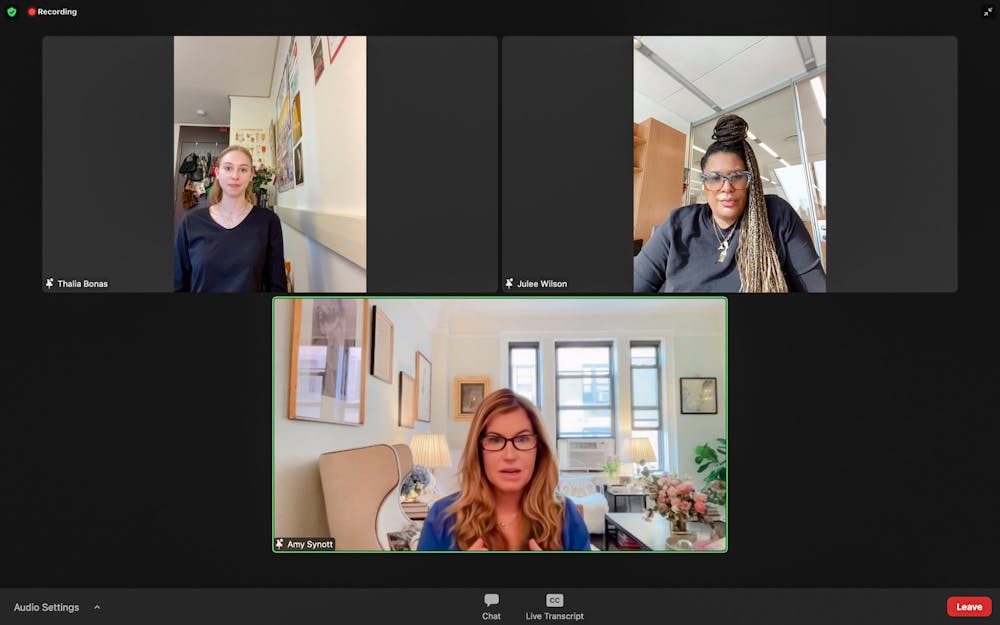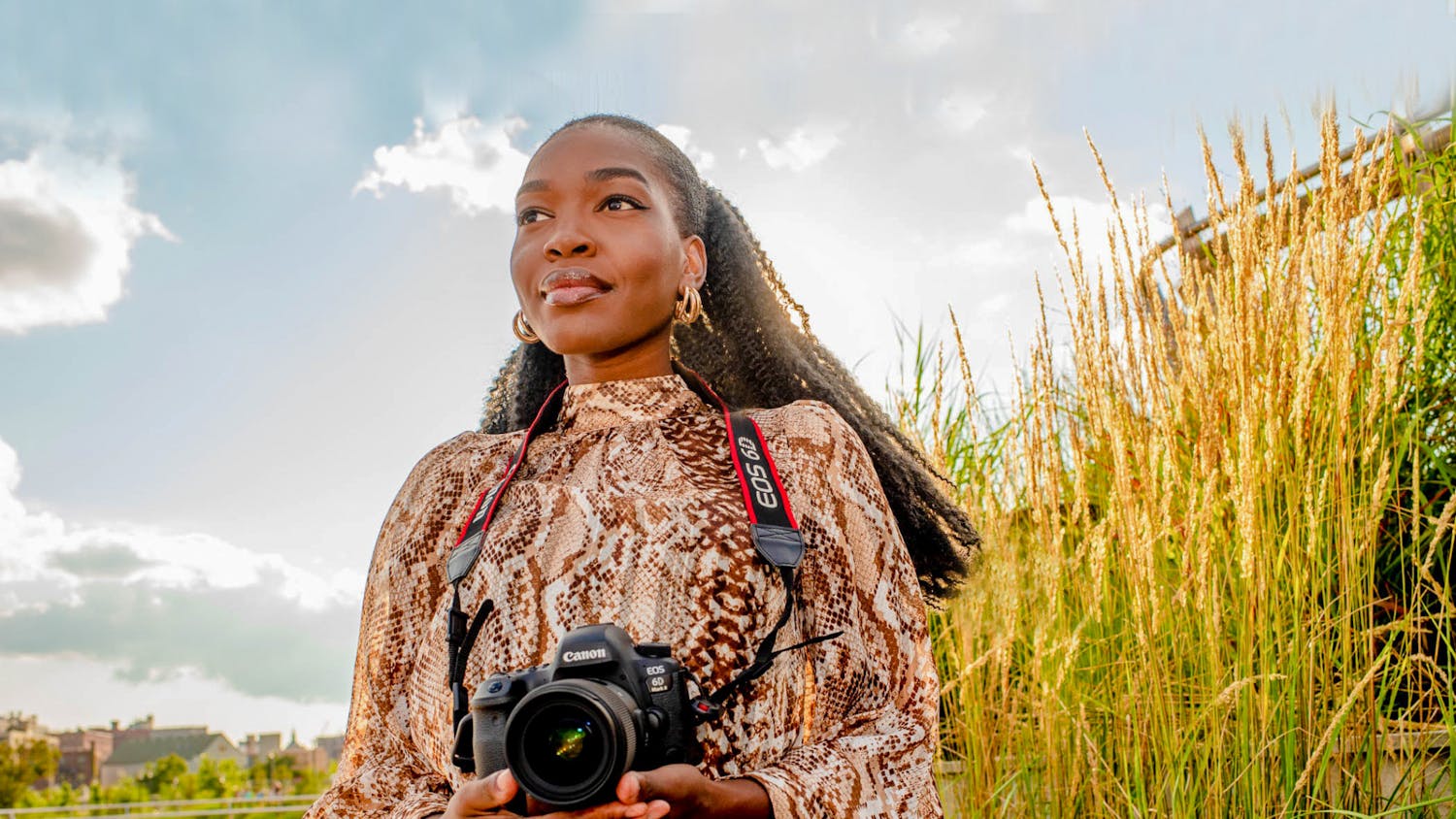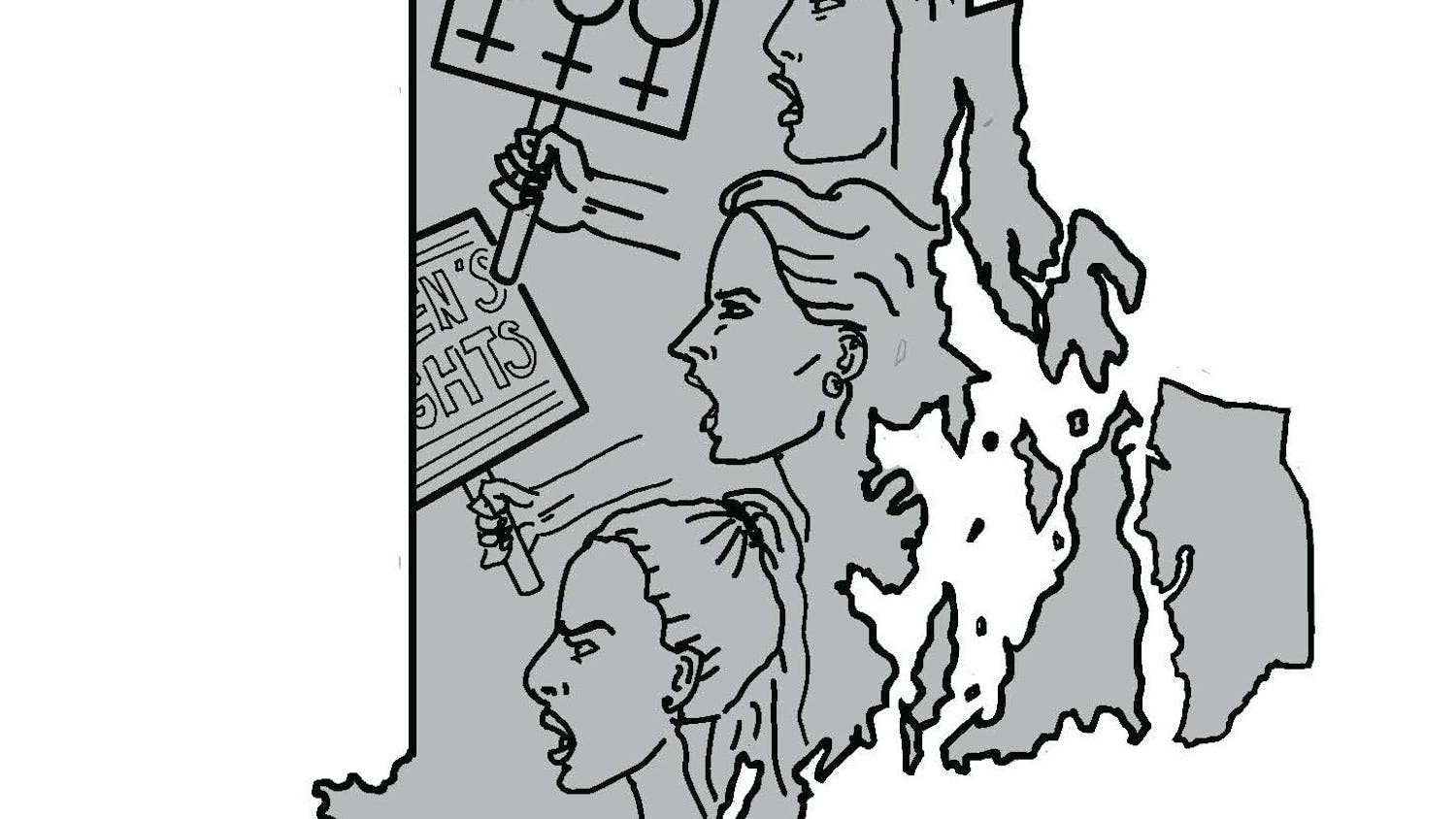Fashion@Brown welcomed Julee Wilson, director of beauty at Cosmopolitan magazine, and Amy Synnott, CEO and founder of Metaspark Media, to their virtual speaker series moderated by Thalia Bonas ’24 Monday afternoon.
Wilson, who has served as Global Beauty Director of Essence and reported for Real Simple and Huffington Post, discussed changes in diversity and representation in the fashion industry and emphasized the importance of advocating for oneself. Synnott, with over 25 years of experience in the fashion, beauty and lifestyle industry, shared her thoughts on the digitization of the fashion industry and how the pandemic has affected different aspects of journalism.
The conversation opened with a discussion on how the journalists find inspiration for their articles and how that has changed over the COVID-19 pandemic. Synnott explained that she would get ideas from “being out in the market, whether from a product launch, gallery opening, or fashion show.” But due to the pandemic, she has had to find inspiration “everywhere.”
“I try to go to things that reach different … demographics,” she said. “There might be a Discord that I’m talking (in) about NFT’s and learning about cryptocurrency, but then there’s a TikTok where I’m learning that I should not be wearing a side part.”
Wilson emphasized a similar sentiment, focusing on the conversations that she has on her social media platform and how it can be a catalyst for “many stories at Cosmo,” such as what hair “wash days” look like for different Black women.
The journalists noted the great variation in the publications they have worked for in their career. Wilson noted the varying paces of the different publications she worked for: At Real Simple, she wrote “three to five stories” a month, whereas at Huffington Post, she turned around the same number of stories, but per day.
“In 2011, (Huffington Post) was the juggernaut of digital platforms and so I knew I had to learn digital fast,” Wilson said. “But I went from a monthly to a minutely.”
After almost five years at the Huffington Post, she had over 2,500 stories attached to her name.
Synnott remarked on the content differences between the magazines she wrote for. She began at “InStyle” when “it started a new genre of celebrity journalism.” Writing for “Bazaar” involved more high fashion content, while she found “Elle,” which covered “really substantive features” and politics, the “most intellectual” of the three publications.
The pandemic has impacted the relationship between journalists and the subjects they are featuring, Synnott said.
“I have all these Zoom recordings on my computer of these interviews that are very challenging to do … because you just don’t get the nuances and the rapport,” she said.
Synnott described a time when she worked at InStyle and interviewed Jennifer Aniston at her home. At one point, Synnott went to the bathroom, where she saw Anniston’s SAG award being used to hold a roll of toilet paper.
“You’re never going to get that hilarious little detail when you’re doing an interview over Zoom,” Synnott said.
Wilson spoke about learning the importance of advocating for herself while at Huffington Post.
In 2015, Essence Magazine reached out to Wilson to write a cover story on Misty Copeland, Wilson’s friend, who had just been named the first Black principal ballerina at the American Ballet Theater. After she shared the information with Huffington Post, they said she shouldn’t do it. The next day, when she decided the story was important enough to potentially lose her job, she told Huffington Post she was going to do it regardless.
“The second I stood up for myself and I leaned in, they were like “Oh, okay you can do it,’” she said. “Advocate for yourself and say ‘this is something that’s important to me.’”
Wilson and Synnott emphasized the challenges of landing a position within the beauty journalism industry.
“There’s a lot of nepotism … colorism … racism … sizeism,” Wilson said. “I’m a Black, size 16 woman with natural hair; the fashion industry chewed me up and spit me out.’”
Wilson did point out that a lot has changed since the start of her career in the early 2000s. She has become more comfortable speaking out and saying “controversial things” that are rooted in truth, she said. One of her opinions: If a Black woman has to know how to style a white woman’s hair, the opposite should also be true.
“There are Black people that read your publication. If they stopped you on the street or at an event and asked you, ‘what are the best edge controls?’ and you can’t tell (them) the top five … you shouldn’t have your job,” Wilson said.
Wilson noted that ever since the summer of 2020, there has been an uptick in hiring people of color for roles in the beauty industry, especially in leadership. She doesn’t view this as affirmative action, but rather the fact that “talented people that might have been overlooked before are now being seen.”
“Now all of a sudden they found all the Black models and diverse models and Indigenous models,” she said. “It’s not like they just appeared. They’ve been there. It just wasn’t a priority.”
Since the beauty industry has been more accessible due to social media, the two shared their thoughts on various platforms.
Synnott said that she thinks the accountability and transparency of social media is beneficial, but she is concerned about the effects it might have on young people. One of her worries is a phenomenon called “Snapchat Dysphoria” where people show plastic surgeons filtered pictures and say, “I want to look like this.”
Synnott also shared that she believes “the next iteration of fashion is a web experience,” adding that she has recently taken a particular interest in NFTs. She launched MetaSpark Media, which is designed to connect brands and women to the metaverse, in 2021. She also works with brands to optimize their content for a digital consumer and navigate NFTs.
“Gucci’s done it…Clinique did an NFT,” she said. “I think what’s exciting about it is that there’s so much opportunity for creativity.”
But she did say that the environmental impact of NFTs is a concern and thinks it's “very important to the people who are pioneers in the space to develop this in a way that is environmentally responsible.”
To close the conversation, Wilson offered words of wisdom to those interested in fashion journalism but are concerned about the decline of the print publication industry.
“Whether your passion is fashion or writing or both, there are many different outlets for that,” she said. “Absolutely.”
Correction: A previous version of this article misspelled Amy Synnott's last name and incorrectly stated Synnott worked on the Clinque NFT. The Herald regrets the error.

Rebecca Carcieri is an arts & culture editor. She is a senior from Warwick, Rhode Island studying political science.





